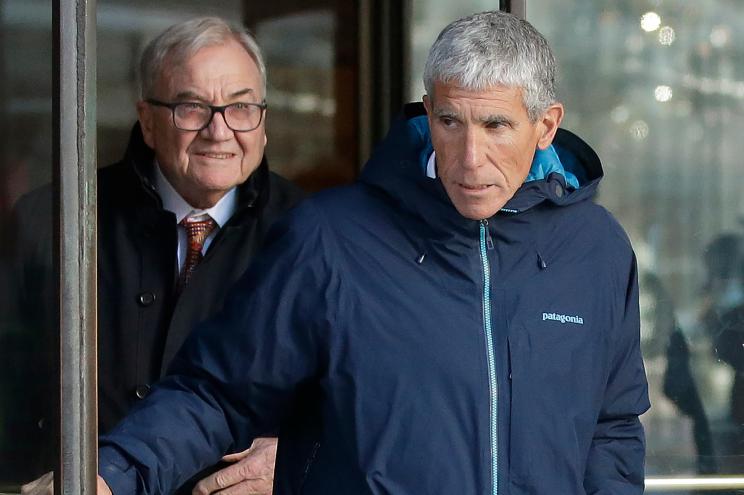The mastermind of the $25 million college-admissions racket pitched his crooked services as a surefire way for wealthy parents to get their underqualified kids into some of the nation’s top universities — and far more effective than making big-bucks donations to the schools without any guarantees.
During a wiretapped phone call last year, William “Rick” Singer boasted that he’d built a “side door” for admission that didn’t cost nearly as much as “institutional advancement,” which is higher-ed jargon for making charitable contributions to a college or university.
“There is a front door which means you get in on your own. The back door is through institutional advancement, which is 10 times as much money. And I’ve created this side door in,” Singer said, while claiming that he had pulled off the scam nearly 800 times.
Court papers say Singer also noted during the June 15, 2018, conversation that with the institutional-advancement strategy, “there’s no guarantee — they’re just gonna give you a second look.”
“My families want a guarantee,” added Singer, who pleaded guilty Tuesday to racketeering charges in the sprawling case, which also resulted in charges against actresses Felicity Huffman and Lori Loughlin and dozens of others.
Experts told The Post on Wednesday that while a hefty donation won’t automatically result in admission to an elite school, it can be a crucial factor in the decision-making process.
“I don’t believe that the large contributions are getting people in,” said Michael London, a co-author of “The New Rules of College Admissions.”
“They’re getting people the benefit of the doubt.”
Elizabeth Venturini, founder of College Career Results, said, “On the admissions papers, it’s marked off whether the parents have some type of relationship with the school. I don’t know whether it’s fair or not … It’s just something that they will look at.”
Ed Boland, a former admissions officer at Yale and Fordham during the 1980s, also acknowledged that colleges consider charitable giving while reviewing applications, but insisted that “by and large, universities have pretty high standards when it comes to not accepting transactional philanthropy.”
During a Tuesday news conference announcing charges against Singer and 49 others, Boston US Attorney Andrew Lelling drew a sharp distinction between making legal, big-money contributions and Singer’s test-cheating and sports-recruiting scams.
“We’re not talking about donating a building so a school is more likely to take your son or daughter. We’re talking about deception and fraud,” he said.
Despite Singer’s claims about the ineffectiveness of the “back door,” he used a charity that was instrumental in his scam to donate $150,000 to DePaul University while his son was a student there.
A DePaul spokeswoman said the school got the contributions in 2014, 2015 and 2016 from the Key Worldwide Foundation, which the feds say Singer used to launder payoffs from his clients and pay out bribes to his alleged accomplices.
“All were in support of helping students study abroad. To date, our review has not revealed any reason to believe these donations are connected to recent indictments,” said the spokeswoman, Carol Hughes.
Hughes said Singer’s son graduated in 2017, but she wouldn’t say if he studied abroad or identify him by name.
Meanwhile, playwright and screenwriter David Mamet came out in defense of Huffman, who he said was “my student, my colleague, worked in many of my films, and created roles on stage in three of my plays.”
“I worked for very many years in and around our Elite Universities. I am able to report that their admissions policies are an unfortunate and corrupt joke,” Mamet wrote.
“That a parent’s zeal for her children’s future may have overcome her better judgment for a moment is not only unfortunate, it is, I know we parents would agree, a universal phenomenon.”








